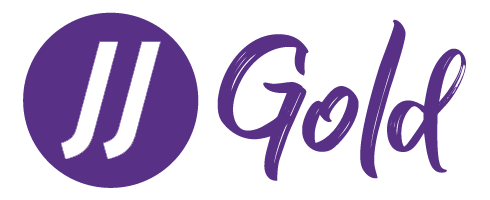Introduction
In the constantly evolving world of business, managing cash flow effectively is crucial for success. Net 30 invoicing stands out as a strategic financial tool that businesses can leverage to enhance their operational efficiency and fuel growth. This blog post explores the concept of Net 30 invoicing, a popular credit term, which allows businesses a 30-day period to pay for goods or services received from vendors. By diving into the intricacies of Net 30 accounts, we will uncover how businesses can use this approach not only to manage their finances more effectively but also to build stronger relationships with suppliers and improve their overall financial health.
What is Net 30 Invoicing?
Net 30 invoicing refers to the credit term used by vendors that gives their business customers 30 days to pay the invoice in full after the goods or services have been delivered. This practice offers businesses the flexibility to manage their cash flow more effectively, as they can use the goods or services immediately but delay payment for a full month. This period enables businesses to generate revenue with the procured items before the bill is due, easing financial pressures and enhancing liquidity.
Benefits of Net 30 Invoicing for Business Operations
Net 30 invoicing offers several advantages that can contribute significantly to the operational success of a business:
– Improved Cash Flow Management: By deferring payment for 30 days, businesses can better align their outgoing payments with their incoming revenues, helping maintain a steady cash flow.
– Enhanced Supplier Relationships: Regular use of Net 30 terms demonstrates trust and reliability, which can strengthen supplier ties and lead to more favorable procurement terms in the future.
– Opportunity for Credit Building: Consistently meeting payment deadlines under Net 30 terms can help a business build and improve its credit rating, which may be beneficial for future financing needs.
– Increased Purchasing Power: With the ability to delay payments, businesses can potentially order more goods or higher-value services without immediately affecting their cash reserves.
By integrating Net 30 invoicing into their operations, businesses not only gain the ability to navigate their financial landscape more effectively but also set the stage for sustained growth and success.
Understanding Net 30 Invoicing
Definition and Basic Mechanics of Net 30
Net 30 invoicing is a common term used in the business-to-business sales world, referring to the credit terms extended by a supplier to their customer, where the full payment for the goods or services received is due within 30 days from the invoice date. This credit arrangement helps businesses manage their cash flow more effectively by allowing them time to use and sell the products before payment is due. The process involves several straightforward steps, beginning with the purchase initiation by the business, followed by the invoice generation from the supplier indicating the Net 30 terms, and culminating with a 30-day grace period for the customer to fulfill the payment.
The Role of Net 30 in Business Cash Flow Management
Implementing Net 30 payment terms can significantly influence a company’s cash flow. By deferring payment for 30 days, businesses have the leverage to utilize their on-hand cash for other critical operations such as payroll, utility expenses, or reinvestment into additional revenue-generating activities. This flexibility can be particularly valuable in managing operational expenses more efficiently and ensuring that cash flow does not stall, despite having outstanding receivables. Moreover, Net 30 terms can provide businesses the opportunity to evaluate product quality and market demand before the financial obligation is due, further optimizing cash flow management and strategic financial planning.
Benefits of Net 30 Invoicing for Businesses
Improved Cash Flow and Increased Purchasing Power
One of the most immediate benefits of Net 30 invoicing is the improvement in cash flow management. Companies can free up capital that would otherwise be tied up in paying suppliers too early. This strategy can lead to increased purchasing power, as businesses can afford to buy larger quantities or negotiate bulk purchase discounts knowing that they have an extended period to settle their accounts. Such arrangements often lead to scaling operations quicker or investing in market opportunities that arise without the pressure of immediate cash disbursement.
Strengthening Supplier Relationships and Building Credit History
Regular utilization of Net 30 terms and timely payments can also foster stronger relationships with suppliers. Vendors appreciate the consistency of receiving payments within the agreed-upon timeframe, which builds trust and may lead to favorable terms in the future, such as higher credit limits or longer payment terms. Additionally, consistently fulfilling these payment obligations on time helps businesses build a positive credit history. As creditworthiness improves, businesses may gain access to more significant amounts of credit, under better terms, which can be instrumental for growth and expansion.
Strategic Financial Management and Growth Opportunities
Net 30 terms enable businesses to manage their finances more strategically. By having the flexibility to time their payments around their revenue inflows, companies can better align their outflows with their incoming cash, minimizing the need for external financing. This strategic financial management helps maintain healthy working capital levels, ensuring that companies can not only sustain operations but also invest in growth opportunities such as expanding product lines, entering new markets, or scaling production capabilities. In essence, Net 30 invoicing opens doors to a range of strategic moves that might not be possible with more immediate payment structures, thus fueling business success and long-term sustainability.
Utilizing Net 30 Invoicing with JJ Gold International

Overview of JJ Gold International’s Role as a Net 30 Vendor
JJ Gold International, a prestigious vendor in the precious metals industry, offers Net 30 invoicing, allowing businesses to acquire valuable assets while managing cash flow effectively. As a Net 30 vendor, JJ Gold International assists businesses by providing a 30-day period to pay for goods purchased, without immediate financial strain. This practice not only aids in maintaining a healthy cash flow but also in planning larger investments or emergency funds without disrupting operational capabilities.
Why Businesses Choose JJ Gold International: Benefits and Services
Businesses gravitate towards JJ Gold International for several compelling reasons:
– Diversity in Offerings: JJ Gold International offers a robust selection of metals, including gold, silver, platinum, and palladium, catering to different investment needs and risk tolerances.
– Risk Mitigation: Investing in precious metals is a proven strategy for portfolio diversification, protecting against market volatility and inflation.
– Wealth Preservation: Precious metals maintain intrinsic value and provide a reliable store of wealth in fluctuating economic climates.
– Liquidity and Tax Benefits: Precious metals are highly liquid assets, easily convertible to cash. Certain tax advantages make them even more attractive, optimizing financial strategy.
– Competitive Pricing and Superior Service: The combination of competitive pricing and exceptional customer service makes JJ Gold International a preferred partner for businesses aiming to fortify their financial footing.
Strategies for Maximizing the Impact of Net 30 Accounts

Techniques for Ensuring Timely Payments
Ensuring timely payments on Net 30 accounts is crucial for maintaining good vendor relations and creditworthiness. Strategies include:
– Setting up Automated Reminders: Use digital tools to remind you of upcoming payment due dates.
– Early Payment Incentives: Some vendors offer discounts for early payments, which can save money and strengthen supplier relationships.
– Regular Review of Due Dates: Keep a regular check on payment schedules to avoid missed or late payments, which can affect credit terms and relations.
The Importance of Meticulous Record-Keeping and Transparent Communication
Maintaining detailed records and open lines of communication with Net 30 vendors is essential for smooth operations. Effective strategies include:
– Systematic Record-Keeping: Utilize accounting software to track invoices, payments, and communication logs. This ensures all financial transactions are documented and easily accessible.
– Proactive Communication: Address issues as they arise, discuss terms transparently, and share plans that might affect payment timelines. Honest communication builds trust and facilitates a more understanding relationship.
Advanced Strategies for Managing Credit and Purchasing
Beyond basic practices, several advanced strategies can further enhance the benefits of Net 30 accounts:
– Credit Line Utilization: Use your Net 30 account strategically to balance cash flow and credit utilization. This can help manage financial resources without overburdening the business with immediate cash outflows.
– Vendor Negotiations: Periodically review and negotiate terms with vendors. Conditions can evolve, allowing for more favorable terms as the relationship and trust grow.
– Analyzing Purchase Timing: Align purchase orders with both inventory needs and cash flow forecasts to take full advantage of payment terms without compromising operational efficiency.
By fully leveraging Net 30 invoicing through vendors like JJ Gold International and employing strategic payment, communication, and purchasing techniques, businesses can not only maintain healthy cash flows and strong vendor relationships but also position themselves for sustainable growth and success.
The Future of Net 30 Invoicing
The concept of Net 30 invoicing, a crucial financial strategy currently employed by businesses to manage cash flow better and strengthen supplier relationships, is facing transformative changes influenced by technology and evolving market dynamics. As we look forward, the integration of technological innovations and strategic financial management is set to redefine how businesses interact with Net 30 invoicing, promising enhanced operational efficiency and potentially reshaping vendor relationships.
Technological Advancements and Their Impact on Net 30 Accounts
The digital age is ushering in significant advancements that streamline and enhance the functionality of Net 30 accounts. Innovations such as automated invoicing systems, AI-driven financial analytics, and blockchain for secure and transparent transactions are transforming how businesses manage these credit accounts. Integrated cloud-based accounting software enables businesses to maintain accurate records and real-time tracking of invoices and payments. This technological leap not only simplifies the management of Net 30 terms but also reduces human error, ensures compliance, and speeds up the reconciliation process.
Furthermore, automated payment systems can improve the timeliness of cash flow by sending reminders and scheduling payments, thereby reducing the incidence of late payments. For businesses, the major benefits include:
– Enhanced accuracy in financial reporting.
– Streamlined operations and reduced administrative overhead.
– Improved vendor relationships due to timely and consistent payment practices.
These tech-driven solutions provide a competitive edge by allowing businesses to focus more on core activities rather than on managing credit terms and follow-ups with vendors.
Forecasting the Evolution of Vendor Relationships and Credit Management
As Net 30 invoicing becomes more embedded with technological tools, the dynamics of vendor relationships are poised to evolve significantly. The emphasis will likely shift from mere transactional interactions to more strategic partnerships, where data sharing and integration play key roles in facilitating smoother transactions and better financial predictability.
Credit management will become more proactive rather than reactive. Predictive analytics and AI tools can help businesses anticipate cash flow issues before they arise, allowing them to take preventive measures such as negotiating payment terms in advance or diversify supplier risk. Hence, the future of vendor relationships may include:
– Joint collaboration on supply chain optimization.
– Customized payment terms based on predictive financial performance.
– Greater reliance on digital platforms for negotiation and contract management.
Moreover, as businesses increasingly value sustainability and ethics in their operations, they will likely favor vendors who not only provide favorable Net 30 terms but also align with these core values. This shift underscores the importance of building robust, mutually beneficial relationships that can withstand market fluctuations and support long-term business growth.
As we move forward, embracing these technological advancements and adapting to evolving relational dynamics will be crucial for companies aiming to leverage Net 30 invoicing to fuel their business success effectively. The landscape is changing, and with it, the opportunities to innovate and thrive in the competitive world of modern commerce.
Conclusion
In today’s rapidly evolving business environment, managing finances with agility and strategic foresight is vital. Net 30 invoicing emerges as a powerful tool that can significantly enhance a company’s operational efficiency, solvency, and growth potential. By extending a 30-day credit term, businesses gain vital breathing space to optimize cash flow, enhance creditworthiness, and forge stronger vendor relationships—each acting as a cornerstone to long-term success.
Embracing net 30 terms empowers businesses to reinvest immediate resources into revenue-generating activities while awaiting invoice settlements. This strategic financial maneuverability can lead to improved purchasing power and greater financial flexibility; factors that are crucial for scaling operations and maintaining competitive advantage in volatile markets. Moreover, timely adherence to these credit terms strengthens a business’s credit profile, an invaluable asset for future financial negotiations and arrangements.
Net 30 invoicing is not just a credit term but a business growth strategy, offering a practical pathway to enhance procurement processes and expand market presence without compromising financial stability. Businesses poised to leverage these benefits can look forward to not just surviving but thriving, capitalizing on opportunities that robust financial health provides. As demonstrated by leading examples in the industry, such as JJ Gold International, the proactive use of net 30 can secure a business’s position as a robust entity capable of navigating the complexities of modern markets with confidence and strategic acumen.
To truly capitalize on the advantages of net 30 invoicing, businesses must maintain disciplined financial practices, negotiating skillfully with vendors, and managing their credit with the utmost responsibility. By doing so, companies not only protect their operational integrity but also position themselves to leverage future financial opportunities. In essence, net 30 invoicing is more than a payment term—it is a pivotal business strategy for fostering enduring growth and resilience.



Leave a reply